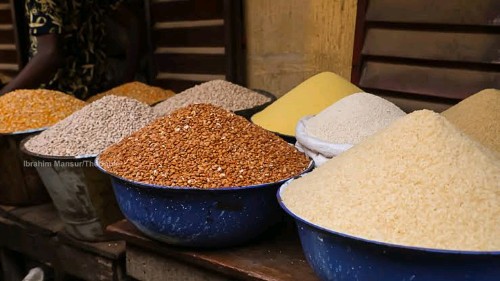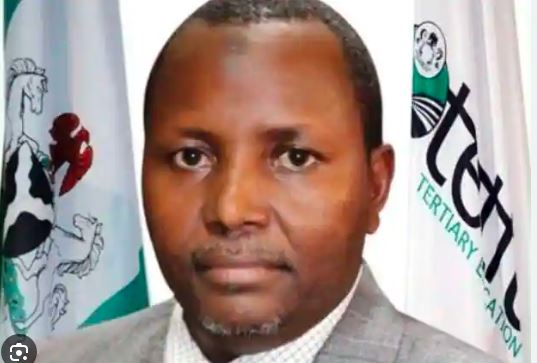Quest to resolve the rising food crisis in Nigeria continues, as newly released data from the National Emergency Operations Center (NEOC), says increasing flood levels have affected no less than 115, 265 hectares of farmlands In Nigeria.
A breakdown of the affected states revealed that Bauchi recorded the highest affected farmlands with 50, 343 hectares, Taraba with 22, 182 hectares, Jigawa with 9, 919 hectares, Niger with 9, 488 hectares, and Sokoto, 8, 676 hectares.
Other states affected by the flooding are Adamawa with 3, 392 hectares, Bayelsa 170 hectares, Borno 313 hectares, Ebonyi 100 hectares, Enugu 953 hectares, Gombe 1, 311 hectares, Kaduna 120 hectares, Kano 3, 072 hectares, Katsina 37 hectares, Kebbi 3, 382 hectares, Yobe with 223 hectares, and Zamfara with 1, 584 hectares.
The report on the 2024 flood by the centre also said 29 states of the federation, 154 local government areas, 611, 201 persons have been affected, 225, 169 persons displaced, 83, 457 households affected, 201 lives lost, and 2,119 injuries have been recorded so far during this year’s flooding.
The new flood data comes on the heels of recent food shortages in the country, and food inflation put at over 40 per cent by the National Bureau of Statistics (NBS).
Nigerians To Spend 54.9% Income On Food In Next Six Months
On Monday, a Central Bank of Nigeria’s survey said rising inflation rate will force Nigerian households to spend the largest amounts of their earnings on food in the next six months.
According to the CBN report, the poll was conducted from July 22 to 26, 2024, with a response rate of 99.7 per cent with its sample size drawn from the NBS master sample list of 1,665 households in the 36 states of the federation and the Federal Capital Territory.
The report, Household Expectation Survey published on its website, CBN said many Nigerians intend to cut down on items that are not essential now, in the next three and six months.
They, however, plan to spend 54.9 per cent of their income on food items in the next six months.
“Spending outlook for the next six months showed that consumers plan to spend a substantial amount of their income on the following items: food and other household Items (54.9 points), education (35.4 points), transportation (30.2 points), electricity (20.0 points) and medical expenses (12.2 points),” the poll shows.
On the flip, the respondents do not plan to spend a substantial amount of income on big-ticket items such as the purchase of a house, car and household appliances.
Also, Nigerians do not intend to spend on investment, such as acquiring landed properties or other forms of investments. They equally do not plan on saving their incomes.
“This reflects their family financial situation in the current month and reaffirms their stance that they will be drawing down on their savings or getting into debt,” the apex bank survey shows.
- Former CBN Deputy Governor Blames Food Inflation On Herdsmen-Farmers Clashes
In August, a former Deputy Governor of CBN and the Director, Center For Policy and Economic Research, Obadiah Malafia, attributed the reason behind Nigeria’s battle with inflation and increased cost of food prices to Fulani-Herdsmen violent clashes, among other factors.
Speaking on Channels Television Breakfast Programme, Sunrise Daily, Malafia said the herdsmen-farmers’ violent clashes including rural bandit attacks have created insecurity and fright amidst rural farmers thereby impeding farming activities and reducing farming productivity.
The former CBN deputy governor said these violent clashes have instilled fear in the heart of rural farmers who now prefer farming in areas near their homes than going to the interior farms far from their homes.
“Another factor is the herdsmen-farmers clashes. It has subsided a little bit, even though several weeks ago, we had a horrible, horrific massacre of Fulanis that took place in Taraba State. Some insist it was a reprisal for what they have done in the past but from whatever source, that kind of violence is very disruptive.”
The damaging consequence of these violent attacks is sadly on the increase as Malafia pointed out that it has not received adequate government attention. Farmers’ productivity is continuously disrupted and subsequently, the nation’s economy is affected.
“It destroys the social capital of the community, it destroys local productivity. In a lot of areas in the Middle Belt, farmers restrict their farming activities to areas near their homes. But, the most productive farmland is in the interior, people have to go several kilometres to where the real farmlands are. People are no longer going there (the interior farms) because they are very frightened of the killings by the rural bandits and we haven’t really addressed it.”
Food scarcity according to Malafia is also caused by planting season.
“The planting season is normally, March-April. So, until the crops are ready for the market, that is the peak of scarcity and high cost of food price. Generally, in Nigeria by late September up to December, food tends to be in abundance because there is a lot of harvest going on.”
The increasing rate of exchange rates is another factor Malafia identified as one of the factors contributing to inflation, stating that the farming inputs including tractors, and fertilizers are imported and these are additional costs.
Revealing the monstrous effects of inflation on Nigeria’s economy, he said, “Having inflation rate hovering over at 16% is still extremely high. We need to wrestle down this monster to single digits and to less than 10% because when we do that, we reduce poverty.
“Inflation is a task on the poor and it discourages investments. So, for growth and a stable market economy to prevail, we need to be able to bring down inflation.”
As a result of the herders and farmers clashes, the Nigerian Police Force recently said it had deployed security officers to farmlands in the north, to enable farmers to access their farms.
- Expect Bumper Harvest, Agric Minister Assures Nigerians
The Minister of Agriculture and Food Security Abubakar Kyari says the country is expecting a bumper harvest before year-end.
While speaking last month, Kyari said the Federal Government had measures in place to address the situation including ramping up farming which would increase food production.
“It [bumper harvest] is about October-November this year. That’s when we are going to have the harvest. We are expecting a bumper harvest baring any natural issues,” Kyari said on Channels Television’s Sunday Politics.
“Well, I am just giving you the assurance that we will have a bumper harvest,” he said.
According to him, one of the reasons for the acute food shortage in the country at the moment is also linked to seasonal reasons.
“The season we have here is a critical issue we have in agriculture. This is what we call the lean season and this is between June-July and the next harvest,” the minister said.
Apart from this, Kyari attributed the food shortage to other issues such as reduced landmass, flooding, and others.
“The shrinkage of land mass for agric, flooding, habitation problems, and insecurity…An ageing farming population; younger people are not going into agriculture now,” he said.
Kyari said the government is further ramping up moves for mechanised farming with the distribution of fertilizers to farmers and efforts to purchase tractors.
“We have ordered. It’s not like chewing gum; you can’t buy it off the shelf. I went to Belarus and ordered 200 tractors and 9,000 other implements,” the minister said on the current affairs show.
“The basic implement for farming in Nigeria is a hoe, which is archaic and antique. That’s why we are talking mechanisation,” said Kyari.
Credit: Channels TV

 BIG STORY2 days ago
BIG STORY2 days ago
 BIG STORY4 days ago
BIG STORY4 days ago
 BIG STORY1 day ago
BIG STORY1 day ago
 BIG STORY7 hours ago
BIG STORY7 hours ago
 BIG STORY4 days ago
BIG STORY4 days ago
 BIG STORY3 days ago
BIG STORY3 days ago
 BIG STORY3 days ago
BIG STORY3 days ago
 BIG STORY5 days ago
BIG STORY5 days ago






















